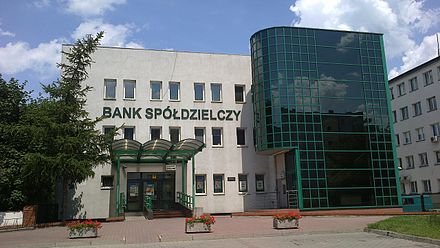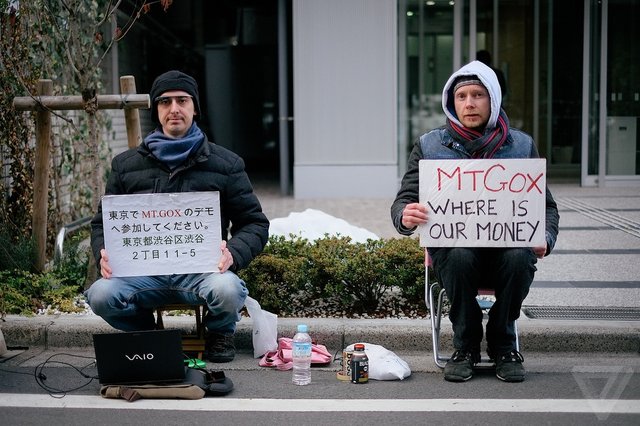The Tether Conundrum - A Re-run of Mt.Gox With Bitfinex!?
In this article I would like to talk about Tether, which is a cryptocurrency issued by a company called Tether Limited. Tether (ticker symbol: USDT) is different from other currencies like Bitcoin or Ethereum in that it is, as the name implies, tethered, or pegged, to the value of the US dollar.
Each token is, in theory at least, backed by -- and redeemable for -- one US dollar held in Tether Limited's bank account.
The price is allowed to fluctuate in the free market, but it has managed to maintain parity with the US dollar over its three-year existence starting in late 2014, except for a brief window in April 2017 when Tether was temporarily cut off from the traditional banking system.
Tether Limited also has a close relationship with Bitfinex, the world's largest Bitcoin exchange, as the people who are involved in Tether are also behind Bitfinex.
There are actually a couple of rather ingenious use cases for USDT Tether. The first one being inter-exchange arbitrage. Tether essentially offers professional investors the ability to quickly move funds between exchanges that trade USDT, such as Bitfinex, Poloniex and Bittrex to name a few, and capitalize on potentially lucrative arbitrage opportunities.
This would be impossible using the traditional banking system, as legacy bank wires take anywhere between a few hours to several days to clear, compared to the time it takes markets to correct temporary price inefficiencies.
Tether is also used as a risk management tool, allowing traders to move into USDT when they anticipate a decline in the price of Bitcoin.
A number of jurisdictions require investors to pay capital gains tax when moving back into fiat, so Tether allows traders to change their stance on the price of Bitcoin without having to worry about tax liabilities.
So, just how big is Tether in terms of marketcap? On December 31, 2016, Coinmarketcap.com listed the circulating supply as 9,951,689 USDT tokens, or the equivalent amount in US dollars.
New tokens were emitted throughout 2017, reaching 216 million by the end of June, 320 million by the end of August, 435 million on October 1, to reach a staggering 1.37 billion tokens on January 1, 2018.
So why is this a problem? Cryptocurrencies have exploded both in price and popularity over the past year, so it makes sense that Tether has been issuing these new tokens to add liquidity to the market.
The issue, though, is that while that is a perfectly reasonable and valid explanation, some people have put forth an alternative hypothesis.
An individual who goes by the handle name of 'Bitfinex'ed' on Twitter has voiced concerns that the new Tethers flooding the market are being issued without any type of backing.
These newly issued Tethers are in turn used to buy actual Bitcoin at zero cost on other exchanges like GDAX and pump up the price. Rising prices, in turn, guarantee a steady supply of new FOMO buyers with actual dollars to spend.
Even if everything is on the up-and-up and Tether has the funds in their bank account to back the new tokens, Tether is still a significant source of systemic risk to the whole market.
This is due to the fact that Tether Limited is a centralized institution issuing a tokenized form of US dollars.
This is murky legal territory of course. As in the case of ICOs, the US government is likely to step in at some point and shut down the whole thing.
It's kind of funny, actually. An entity suspected of running a fractional reserve system pegged to the fractional reserve currency of the United States!
Not just is Tether vulnerable to regulatory action by the United States government, it is also vulnerable to being hacked.
Tether recently announced that it had been hacked and that $30 million in USDT tokens had been moved from the company's 'treasury wallet' to an address controlled by the attacker.
The funds have been blacklisted and the OMNI platform is expected to resolve the situation by hard forking, but the implications are clear.
The attackers managed to breach a multi-signature wallet, leading critics such as Bitfinex'ed to suggest the possibility of an inside job. The address used in the attack has also been linked to the January 2015 hack of the exchange Bitstamp.
In addition to a climate of regulatory uncertainty and serious security issues with Tether/Bitfinex, there is also the issue of banking. Earlier last year Bitfinex users experienced deposit and withdrawal issues involving Wells Fargo and Bitfinex's Taiwan banks. This has led the community to question whether Bitfinex and Tether have had their access to traditional banking services cut off.
Tether Limited hired the services of Friedman LLP to conduct a limited audit to prove that the company held the funds needed to back the newly issued Tethers.
The result of this audit seemed to confirm that Tether Limited did have the funds in various bank accounts, but an important piece of information was redacted in the official audit report, namely the names of the institutions Tether banks with.
Following the November hack, and perhaps feeling pressured by the increased skepticism in the community, Bitfinex made an announcement on their website that they were enabling Euro deposits through Bank Spoldzieczy, an agricultural co-operative bank in Poland.
The account number provided for these deposits is registered to CRYPTO SP.ZO.O, a limited liability corporation based in Poland.
CRYPO SP.ZO.O is a wholly owned subsidiary of Crypto Capital, a company registered in Panama.
Scam accusations have been levied against Crypto Capital in the past. In a Bitcoin Talk thread titled 'Crypto Capital Do Not Pay,' a forum user complained that the company wasn't honoring his €12,000 withdrawal request.
According to the original poster, the issue was rectified, and the exchange in question, Kraken -- which was using Crypto Capital as a payment processor -- managed to get the transaction canceled, and the money restored to the user's account.
So, in conclusion, while so far there hasn't been any conclusive evidence that Tether is issuing unbacked USDT tokens, it is clear that both Tether and Bitfinex are having trouble maintaining a fiat gateway to the traditional banking system for deposits and withdrawals.
In addition to their ongoing backing woes, the fact that Tether is issuing a digital token pegged to the US dollar could have serious legal repercussions for the company.
Moreover, the August 2016 hack of Bitfinex and the recent Tether hack demonstrate that both entities have a wide attack surface.
A loss in confidence in Tether would have a dramatic impact on all currencies traded against USDT.
Bitcoin meets all the criteria of sound money: it is a scarce resource with intrinsic value in the form of a decentralized, censorship-resistant network of frictionless payments spanning the entire globe. It is highly portable and easily transferable, combining the best attributes of precious metals, with the convenience of centralized fiat-based systems like Paypal.
The whole concept of a centralized token network backed by a fractional fiat currency is anathema to to the ethos of Bitcoin. And while I think there's has been enough growth in organic demand over the past year that the collapse of Bitfinex or any other exchange wouldn't pose an existential threat to Bitcoin, I would urge everyone to stay alert and exercise a healthy amount of caution.
Be your own bank and hold your private keys. If you don't hold it, you don't own it. Thank you for listening and don't get tether'ed!



well read; thanks for your valuable information
Thanks for reading and thanks for the upvote! This will be my first non-zero payout on Steemit, so it's kind of exciting!
As for Tether, it's scary stuff. More than China and other governments threatening to ban Bitcoin, it's Tether/Bitfinex that keep me up at night.
it's an honor to be your first upvoter of non-zero payout^^.
I'm trying not too scared of tether/bitfinex and being faithful of their devotion to this business.
Let's see what will happen next...
have a great day~~~